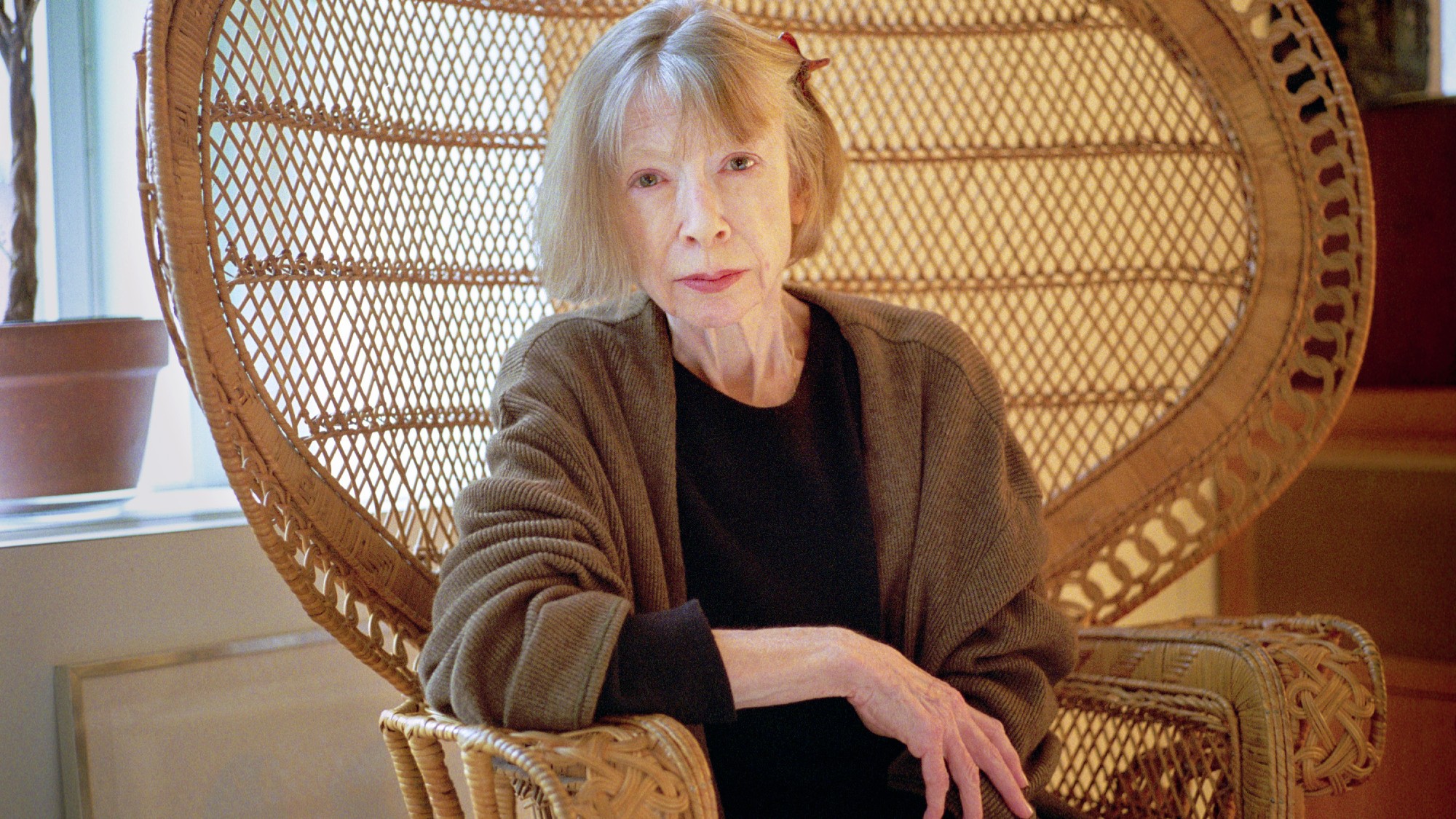Joan Didion and posthumous publishing: a new problem?
Personal and intimate diaries from the author – which she kept out of public view – will be released in April

A free daily email with the biggest news stories of the day – and the best features from TheWeek.com
You are now subscribed
Your newsletter sign-up was successful
When the writer Joan Didion died in December 2021, she left behind a literary legacy of five novels and 13 pieces of non-fiction, as well as screenplays including the original "A Star is Born". In April, her personal diaries will join the list, released under the title "Notes to John". Written after Didion's sessions with her psychiatrist, they give a "deeply moving" and "astonishingly intimate" insight into the novelist, said publishers 4th Estate. But news of the publication has drawn concerns as to whether this is what Didion herself would have wanted.
She had neither told her agent or publisher about the diaries, nor ever made any move towards having them published, said The New York Times's Alexandra Alter. In addition, she had also "occasionally expressed disapproval" of publishing houses releasing "every last scrap of a famous author’s work", including criticising the posthumous release of an Ernest Hemingway novel as a "betrayal".
From Samuel Pepys to Amy Winehouse
Posthumous publication – the publishing of creative work after the death of its creator – is not a new phenomenon. Samuel Pepys' diaries, F. Scott Fitzgerald’s unfinished "The Last Tycoon" and both "Northanger Abbey" and "Persuasion" by Jane Austen were all released this way.
The Week
Escape your echo chamber. Get the facts behind the news, plus analysis from multiple perspectives.

Sign up for The Week's Free Newsletters
From our morning news briefing to a weekly Good News Newsletter, get the best of The Week delivered directly to your inbox.
From our morning news briefing to a weekly Good News Newsletter, get the best of The Week delivered directly to your inbox.
More recently, Gabriel García Márquez's sons last year defended their decision to publish his novel "Until August" against his dying wishes. They argued that it would be published eventually and that doing so now would allow them to protect its copyright, reported the BBC.
Henry James and Charles Dickens are among those authors who burnt their personal papers to ensure they would not be published after their death. Philip Larkin also voiced his approval of the practice: "Really, one should burn everything," he said, although, as Jane Shilling pointed out in The Telegraph, he failed to carry through his plans for an "epistolary pyre", resulting in a posthumous edition of "Selected Letters".
Musicians are no less immune, noted The Independent's Helen Coffey. "Lioness: Hidden Treasures", a compilation of previously unreleased recordings from Amy Winehouse, hit the market six months after her death in July 2011, while 1978's "An American Prayer", the "woefully misguided Doors album", was "cobbled together" seven years after singer Jim Morrison died.
Keeping the art alive
Without posthumous publishing, we would not have Franz Kafka's "The Trial", the poems of Emily Dickinson or "The Diary of Anne Frank", said fashion and arts magazine Russh. To deny their publication would be to silence voices that "still might have something to say". That said, the landscape today has become "distinctly dystopic", as seen by examples like the AI-generated song "by" The Beatles and the CGI Carrie Fisher used in two recent "Star Wars" films.
A free daily email with the biggest news stories of the day – and the best features from TheWeek.com
Indeed, said Coffey, we'd know much less about 17th-century London life without Pepys' "rich historical source material". It is the motivation around the publication that needs examining, she added. If the aim is simply to "line pockets" instead of honouring an artist's legacy, then "that hardly seems a good enough justification".
But with writers' "always" stealing from life "and from everyone around them" for artistic inspiration, perhaps it is "only fair that life sometimes steals" from them, too, said Alex Belth for Esquire. "Especially when they’re no longer around to complain."
Elizabeth Carr-Ellis is a freelance journalist and was previously the UK website's Production Editor. She has also held senior roles at The Scotsman, Sunday Herald and Hello!. As well as her writing, she is the creator and co-founder of the Pausitivity #KnowYourMenopause campaign and has appeared on national and international media discussing women's healthcare.
-
 How the FCC’s ‘equal time’ rule works
How the FCC’s ‘equal time’ rule worksIn the Spotlight The law is at the heart of the Colbert-CBS conflict
-
 What is the endgame in the DHS shutdown?
What is the endgame in the DHS shutdown?Today’s Big Question Democrats want to rein in ICE’s immigration crackdown
-
 ‘Poor time management isn’t just an inconvenience’
‘Poor time management isn’t just an inconvenience’Instant Opinion Opinion, comment and editorials of the day